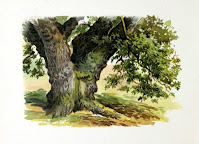Have you just found my blog? Welcome!
This is my list of things that beginning genealogists often do that you’ll probably not find to be useful or even regret. Since I began researching, more than three decades ago, the genealogy world has changed significantly because of the Internet and databases. Also there is an epidemic of scams. Those changes make it easier than ever for people to do their own research. And to be mislead or conned. This list is made up of things I did or someone I know did and was affected by!
1) Posting for family information in hopes of reaching out to others who have already done the work so you won’t have to do it at all or do it alone, thinking you can just believe it and copy it.
It can be nice to have a collaboration but there’s no way to know from the start if the stranger you connected with does quality research, will respect you, or share in a fair way. Be especially aware that con artists and scammers may use your personal information… or even pose as a relative.
Ask yourself why you’d be comfortable virtually yet not want someone to have your home address!
Keep to professional standards! '
And then if you do find a collaborator, you’ll have something to offer.
2) Posting your research on databases or sharing it prematurely because it isn’t solidly backed up with documents. Many a beginner just doesn't know better. Your family stories are precious and can be part of your book but may not be upheld by research.
Rumors and speculation cannot substitute for a clear research path that others can follow and documents. Don’t accidentally, through ignorance, lead other researchers wrong!
3) Not considering that charts you post may not please those who are not contacted first for permission. You may be well-meaning but they may not be interested or horrified
Some sites prod you to provide photos, give them voice samples as you record stories to share with anyone in the world, and provide other information that can profile you. Adding live persons on a chart, even as an unnamed silhouette, is NOT protecting their privacy. Keep the research within the immediate family. Ask them first. Explain it to them.
It’s still ok to print out and mail.
3) Not reading the fine print about who owns your research or DNA information. How long is it yours or protected? What about your copyright? When do you loose control of it? Can it be used by law enforcement?
This is not just about you! You may die before they’re born but they still deserve to have privacy!
4) Using your full real name for the world to see.
Choose a handle, moniker, or nickname or an icon to represent you. Unless you're up to no good it's OK.
5) Posting with a database that has no one to complain to if you're violated or is ineffective in helping when you are. There should be a way to have information that has been posted about you or your ancestors - correct or not - taken down because it is wrong or you think it's private. Beware if it’s stated that once you post it’s permanent.
Privacy laws which may vary from country to country.
6) Using an e-mail address for genealogy that you use for business or personal communication.
Set one up just for research. I store research in a g-mail account that I never use for communication. You can store photos and documents in Blogger (set on private), Drive, etc. since I've never shared that account I've received no spam or phishing. Set another up for genealogy communications.
7) Posting a person’s death certificate on a gravestone site even though the years have not gone by in which their privacy would be protected otherwise. No privacy in death either? Just horrible and violating of living persons medical privacy too. Telling the whole world someone had died of alcoholism, cancer, or perhaps by suicide.... To me, well, to be nice, let's say it's bad karma.
Graveyards that let people tromp and report are so irresponsible in allowing this to happen. Even people who did not want their death announced in obituaries … who thought of their religion, charities, marriages, and children to be their own business, are quickly violated when their tombstones are photographed and burials reported, especially upsetting when the religious cemetery claims burials are on sacred ground (which you probably paid more for).
Why obits? It used to be so friends could give their condolences… I think obits are getting to be obsolete. When it the last time you found out a friend died that way? Oh and those prompts to send flowers! Funerals are already overpriced and so are cemeteries. Don't get me started!
8) Publishing for distribution - even to immediate family - in which you do not state references and do not state intellectual property information and do not state the expectations of privacy. You can do all the right things to do so but in the hands of the wrong relative it all goes onto a database and the Internet.
I personally use many databases. I do not post my research on any of them.
C 2025 Ancestry Worship - Genealogy BlogSpot.

.jpg)






.svg.png)












